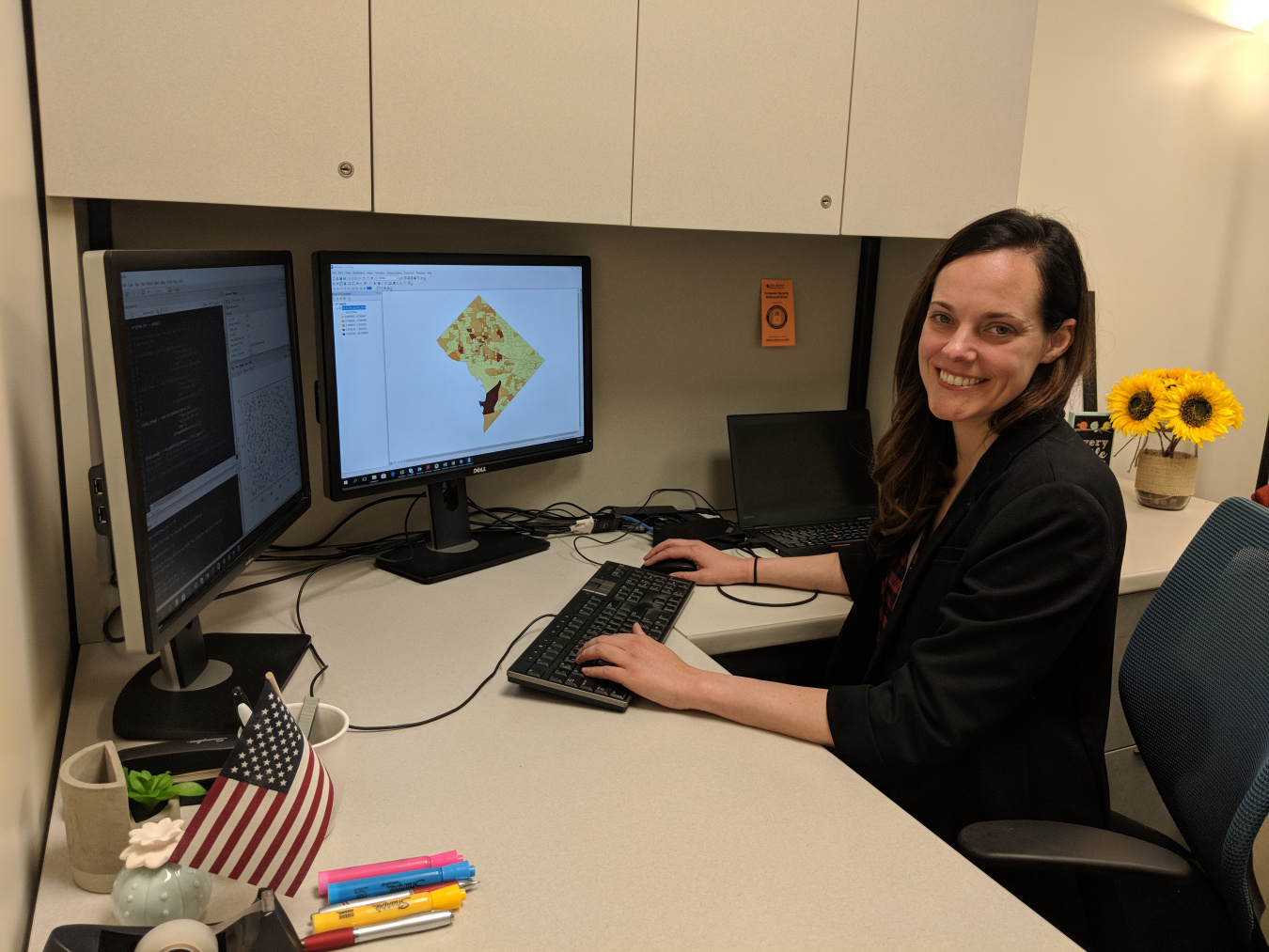
April Morton may owe her career in AI to country music. She’s a California girl who loved math throughout her childhood and had fun learning new mathematical concepts. When it came time for April to pick a college major she chose math right off the bat, but didn’t really know what kind of a career she could have with a math major beyond teaching so she figured she’d teach after graduation.
When April decided to get a Master’s degree in math before going into teaching full time, she spotted an internship posting for NASA’s Jet Propulsion Laboratory and headed to Pasedena, California to spend a summer validating statistical models.
“My mentor at JPL said you should consider a career in research, it might be something that you do well in,” April said. “No one had suggested that to me, I didn’t know it existed, but that encouragement went a long way… that really changed how I was thinking about my career.”
Fortuitously, soon after that April attended the SACNAS Conference (Advancing Chicanos/Hispanic & Native Americans in Science), and happened by a booth at their expo for the Oak Ridge National Laboratory (ORNL). April didn’t know anything about the Lab at the time, but the fact that it was located in the heart of country music land in Tennessee was an immediate selling point and she handed over her math-skills-packed resume to the recruiters.
“I really like country music and thought, this place was cool and had a great mission to help the U.S. with its energy needs…. but country music sadly was a big driver of my decision at the time,” April confessed.
April’s internship was supposed to last three months, but she’s been at the Lab now for about seven years, all with the same supervisor and mentor. “My biggest role model is my current mentor – the one who took me in in 2012,” April said. “He was there right at the time when I wasn’t sure if I wanted to go into STEM. He’s very passionate about what he does and has always supported me, he’s really always fighting for me and encouraging me. The encouragement is what kept me in STEM – I don’t know if I would have stayed without thinking I could do it. It was really intimidating to me at first.”
April’s deep math skills are what has enabled her to have a successful AI career. “AI uses a lot of math,” April said. “The way I think of AI is that it is developing algorithms that can be used by computers to perform reasoning tasks that you would normally perform with your own human brain.”
Common examples of AI, April noted, are computers recognizing images like in the case of Google Images search, or speech recognition, like when your smart phone translates your words into a text message. “What people don’t realize is that it can be used for a lot of common other little things,” April said.
April and her work team use AI to predict where people commute to work from their homes. She hopes to add these AI-based prediction methods to another software model she created with her team to create a “synthetic population”. This software pulls from current U.S. demographics information and census data to create imaginary populations and then predict where those people likely live, work (based on the industries they work in), and how they commute between the two. This kind of data is ideal for urban planners, who can then make infrastructure to serve their population and reduce traffic and pollution.
The software April developed at ORNL to create synthetic populations can also be used for predicting health outcomes, for instance by helping researchers in public health plan for disease outbreaks by knowing where patients are living and traveling within in a city, or emergency management.
April credits her diverse team at ORNL for helping her produce her work. “There have been studies that show the more diverse your team is when you’re solving a large problem – age diverse, race diverse, background diverse – the more effective you are at coming up with a solution. In my own team you have computer science, statistics, geography, math experts, and others – you all have to be able to work together to come up with a solution,” April said. “Especially in AI it is good to have this diversity since you’re talking about applied problems that affect everyone, not just one group of people.”
If you’re looking to get into AI, April recommends that you pick a degree in math, statistics, or computer science, dive deep and specialize in an area, and then pick up basic skills in programming, statistics, communications, and working with people of diverse backgrounds. The ideal candidate for an AI team, she said, will understand the big picture of what the need is for the algorithm they are creating, and be able to have the broader thinking to integrate that understanding when they are coding it. Then, find a mentor who you’re comfortable with, and start taking introductory data mining or machine learning classes. You can find courses online on sites like Coursera.
Now April is on her way to a third degree, a Ph.D. in data science and engineering so she can keep refining her AI skills. She takes classes part time at the University of Tennessee Knoxville around her work schedule and expects to graduate by May 2021.
April notes that ethics are a major part of the AI practitioners’ conversation. They are thinking about how the people down the line from their predictions will be impacted by these algorithms, how AI impacts privacy, and how to be mindful of who is being impacted by the predictions AI makes. “It will continue to expand and that’s part of why I think ethics is such an important part of our work,” April said.
“AI has a lot of power to solve problems,” April said. “I think it’s going to keep growing at a really rapid pace. We’ll have more and more data, and things will continue to get smarter in our homes in our lives. Think Alexa times 100 or more.”
12/18/19 Editor's note: April passed away in December 2019 from a kyaking accident. Her work and life were an inspration to many.
